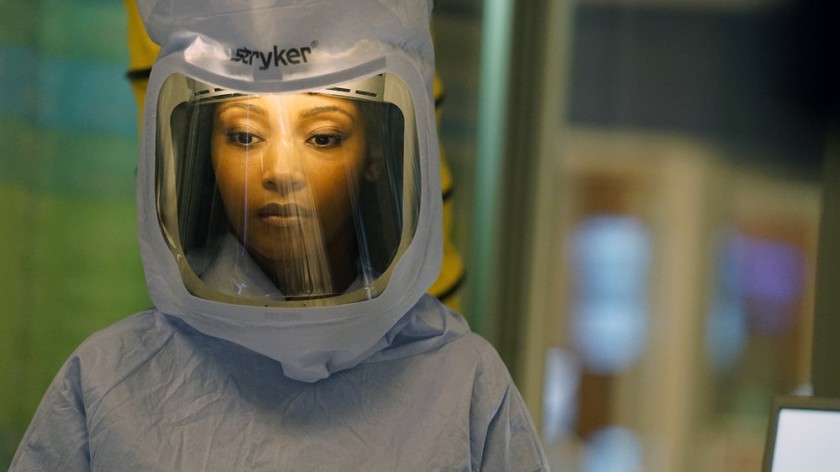
- Television
Pandemic TV: How Medical Shows Handle the Health Emergency
With first responders and healthcare workers emerging as the true heroes of the Covid-19 pandemic, there was no way around it. Television series, especially those on network TV, may fall into the fictional category, but when the shows deal with doctors, they have always been grounded in reality, simply in order to be believable. And so, it was inevitable that Covid-19 would invade their storylines.
Grey’s Anatomy, which is television’s longest-running medical show, immediately embraced the pandemic plot from its Nov. 12 season 17 first episode, in which Dr. Meredith Grey (Ellen Pompeo) falls ill and goes through every single symptom and experience, including floating somewhere in the space between life and death, where she starts meeting the long-since-deceased Derek Shepherd (her husband, played by Patrick Dempsey) on a beautiful beach. She is just close enough to wave and even talk but never really reaches him – after all, she has the children at home waiting for their mommy to return from her hospital bed. This plotline is still playing out as we speak. While Meredith is on the ventilator, Dr. Bailey (Chandra Wilson) loses her mother to the virus. Meanwhile, in a crossover episode with Station 19, we see how her husband Dr. Ben Warren (Jason George), quarantined from his wife and children because of his work as a firefighter, is dealing with it all.
All the other Grey’s characters bring the pandemic home with equally heartbreaking reality: the writers were very conscious of how all their consultants – real-life medical workers – were reacting to their job, as showrunner Krista Vernoff told a group of domestic journalists: ‘We could see that they were changed as humans. They were pale and shaking and looked traumatized. It became really clear to us that healthcare workers are walking through a war they were not trained for. And it felt like that was a story to tell.’
The Resident, season 4, which has not premiered yet, will deal with the long-term fallout of the situation and go beyond the vaccination process, the producers say, as the entire Chastain Park Memorial Hospital, from the doctors to the nurses and administration staff, are dealing with the crisis. One of the show’s consultants is Daniela Lamas, a critical care doctor in Boston, who penned an article for the New York Times in which she described her experiences with fighting the disease in her patients. Lamas is the co-writer of the show’s premiere episode, along with Dr. Eric I. Lu, who is also an MD.
Just like its competitors, the Dick Wolf-produced Chicago Med has begun to address the pandemic from the get-go of the new season. The hospital has its own COVID unit now, with patients getting tested. And of course, one main character is hit hard by the virus. With its companion shows Chicago Fire and Chicago P.D., a few crossover episodes are definitely planned.
What was a given for other showrunners, required some more thought from the makers of The Good Doctor, whose writers at first considered not dealing with a topic people were already living through, but then decided that it would be necessary for Dr. Shaun Murphy (Freddie Highmore) and co to address it. Season 4’s first two episodes are jumping right in, and the story could be extended, now that we all know that our hopes of the pandemic being long over by the spring (when most shows returned to the writers’ room) were overly optimistic.
New Amsterdam’s executive producer Peter Horton tackled another issue. His show has always prided itself on showing uplifting human stories in these dark days for humanity, but how to do that right now? The series will try to prove that you can in its season 3 premiere, buoyed by its star, Ryan Eggold, who told the world about his own COVID-19 diagnosis on Instagram, where he advocated donating plasma after recovery, and added: “I don’t believe in any politician as I much as I believe in people and our ability to help each other when times are tough. I’m excited for the day when we can get back to human connection, people working to feed their families and pay their rent, kids back in school…not to mention all those beautiful things that make life extraordinary like a good meal out with friends, live music, theatre, sports…all that fun stuff.” Pretty uplifting, after all.